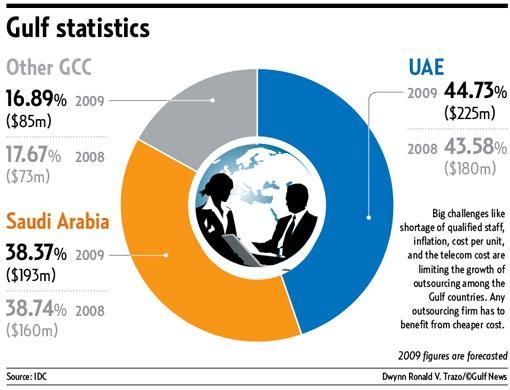Dubai: Increasing IT budget constraints have impacted spending in the region and therefore new kinds of business models like managed services and software-as-a-services (Saas) are expected to see a lot more appetite this year, research firm International Data Corp (IDC) said.
"Virtualisation is suddenly becoming more interesting for companies. As consolidation is taking place, virtualisation will gain momentum despite the current two to three per cent penetration rate," Jyoti Lalchandani, vice-president and regional managing director for MEA and Turkey, said.
"If you really look at the total cost of ownership, the cost of server is just a small position of the total cost of the assets. When you add the cooling cost and maintenance cost it is two-thirds and one-third split. You are spending two-thirds of your money on managing your asset while you are spending one-third for buying that asset."
Many vendors like HP, Sun, IBM, Microsoft, EMCs are capitalising on this area. Other area is cloud computing. In the next two to three years, the cloud is going to reshape the way applications, infrastructure is provided to companies.
"With the advent of advanced technologies and innovative distribution models, we are witnessing an increasing dependence of businesses in the region towards IT outsourcing services, as a means to remain competitive," said Navneet Tandon, Vice President - ERP & Services, Raqmiyat, a leading UAE-based systems integrator.
He said offering these services using cloud computing makes implementation easier and processes more effective and efficient. Success is highly reliant on the extent of the solution provider's knowledge and proficiency at mastering the business processes and culture within the market.
Jyoti said if the crisis drags on for another year or so, companies will look at reducing their cost base and look for alternate providers.
"I don't think the crisis has forced many companies for full-scale outsourcing," Jyoti said.
Outsourcing spending in the Gulf is expected to reach $503 million, an increase of 21.8 per cent compared to $413 million in 2008. The UAE is expected to retain the lead with 25 per cent increase to $225 million this year followed by Saudi Arabia with 20.62 per cent to $193 million.
"Outsourced IT services in the UAE continue to offer strong growth potential. Similarly, cloud computing holds much potential in terms of increasing operational efficiency and its aggressive development as an emerging technology is being closely followed by many organisations in the Middle East," said Tandon.
"Managed service is one area where we are going to see some convergence between IT and telecoms. Slowing revenues coming from mobile and fixed lines despite higher penetration rates, telcos are looking at managing their applications on behalf of their customers," Jyoti said. He said big challenges are limiting the growth of outsourcing among the Gulf countries.













